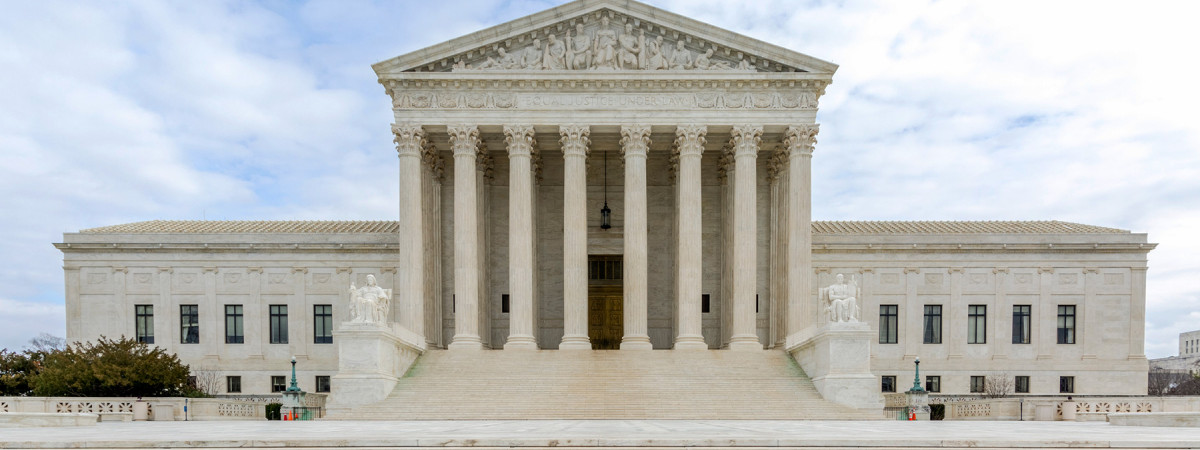
Photo by BrianPirwin on iStock
Key Points
- Business leaders should respond to the end of affirmative action for what it is—a significant and material risk to long-term corporate economic success.
- Bold and committed action in the months ahead will ensure that progress toward a more diverse, equitable, and inclusive economy is not lost, nor business value diminished.
- Businesses can demystify affirmative action impacts among stakeholders and bolster good-faith, fact-based public narratives, policy, and legal discourse.
It is expected that the US Supreme Court may issue a landmark decision that ends the practice of affirmative action this month. The ruling would effectively ban US colleges and universities from considering race as a factor in admissions decisions which, as illustrated by existing state-level bans of the practice, can reshape the demographics and diversity of campuses for generations.
More broadly, as research has shown, the consequences of a national ban on affirmative action are likely to ripple throughout the US economy as decades of efforts to increase social and economic participation by historically excluded populations are upended and schools, businesses, communities, and governments become more racially, and even ideologically, homogeneous.
For business leaders that care about hiring and retaining diverse and exceptional talent, developing and delivering innovative products and services, and attracting a diversified consumer base, the end of affirmative action should be seen as more than another philosophical or policy debate in the so-called “culture wars.” Indeed, business leaders should understand and respond to the end of affirmative action for what it is: a significant and material risk to long-term corporate economic success.
As such, bold and committed action is needed in the months and years ahead to ensure that progress toward a more diverse, equitable, and inclusive economy is not lost, nor business value diminished. Even as we wait to see the final ruling, there are seven key actions businesses can take:
Underscore Your Company’s Long-Term Commitment to Diversity
- Reiterate your company’s commitment to building and maintaining a diverse workforce and organization. According to recent public opinion polling, 69 percent of adults agree that a company should respond to issues surrounding race, including supporting schools and communities teaching about the impacts of slavery and racism. Raise awareness of your company’s commitment to operationalizing DEI initiatives, developing products and service offerings that meet the needs of diverse communities, and supporting broader racial equity and social justice efforts.
- Commit to corporate accountability initiatives that focus on racial equity and DEI in the workplace. Business leaders need to be regularly exposed to and equipped with educational resources and practical tools and can seek out opportunities to participate in current and emerging civil society and philanthropically supported efforts. Among others, these might include:
- Pilot new corporate standards tackling inequality from the Corporate Racial Equity Alliance, a partnership between PolicyLink, FSG, and JUST Capital. The standards will provide business leaders with clear goals to strive for, milestones along the path, and metrics to track in order to communicate progress in this work and earn greater trust. Piloting companies will receive individualized support from the Alliance and provide essential input to help shape the standards for the field.
- Join the Expanding Equity network supported by the W.K. Kellogg Foundation, which offers resources, as well as learning and networking opportunities, for business leaders focused on advancing racial equity, diversity, and inclusion (REDI) strategies in their organizations. Several resources are available now, and a robust learning platform with courses on REDI strategy development and related topics will roll out later this year.
- Assess your company’s hiring data to identify barriers to diverse talent acquisition and surface factors that may support the long-term hiring of diverse workers. This may include collaboration between human resources, communications, and legal teams to review job listings and ensure barriers and biases are eliminated. Companies may also evaluate their onboarding, performance review, and employee benefits policies and practices to understand where there may be opportunities to increase the retention of diverse workers.
Demystify Affirmative Action Impacts among Company Stakeholders and Bolster Good-Faith, Fact-Based Public, Policy, and Legal Discourse
- Support campaigns by industry groups and peers that inform how colleges and universities utilize affirmative action to enroll a diverse student body and highlight the direct and indirect impacts of the practice on your business. In the coming months, the broader narrative in the public around affirmative action is likely to be fueled by polarizing inaccuracies, misperceptions, and hyperbole. Business leaders should look to leverage their communications, policy, and other media infrastructure to elevate the discussion of affirmative action so that it is based on facts and the real, tangible ways in which the court’s ruling impacts your company and the broader economy.
- Establish guidelines for your state- and federal-based political giving that minimizes donating to candidates who spread misinformation about affirmative action practices and impacts. As we head into what is likely to be a divisive and controversial election cycle, corporations can play a direct role in minimizing the extent to which bad-faith actors negatively influence public and policy discourse around affirmative action practice and impacts and the long-term benefits of a diverse, inclusive, and equitable economy, more broadly. Whether individually or in alignment with industry peers and other valued stakeholders, business leaders should consider how their political giving can be tailored toward political candidates and leadership that champion good-faith ideas based on fact and the economy’s long-term interest in mind.
- Leverage philanthropic, community engagement, and corporate responsibility resources to foster the development of student admission approaches and strategies that support and safeguard diverse enrollment in higher education and at trade schools. Here, companies can collaborate with school leadership and educational associations to conduct regular engagement sessions or support research that informs admission officials’ understanding of potential admissions approaches and practices that can further support diverse talent development pipelines.
- Prepare for ongoing state- and federal-level engagement. Companies can ensure that their teams are equipped to monitor and support with amicus briefs to safeguard human resources initiatives, DEI programs, and other corporate diversity efforts at lower-level federal and state courts before they bubble up to the higher courts. Furthermore, given state-level policy already targeting DEI programs with an intent to send a chilling message, companies should expect copycat efforts in future legislative sessions.
As we saw with the fall of Roe v. Wade last year, the end of affirmative action is likely to encourage partisans and extremists to seek out a myriad of legal, policy, and media levers to create unrest across jurisdictions. The business community cannot afford to watch from the sidelines or be caught off-guard because of a lack of action or infrastructure to reinforce and protect long-term business strategy.
BSR’s Center for Business and Social Justice works with a network of civil society partners and experts in reproductive health to provide tangible guidance to business. All BSR members can contact the Center for specific inquiries.
Topics
Let’s talk about how BSR can help you to transform your business and achieve your sustainability goals.








